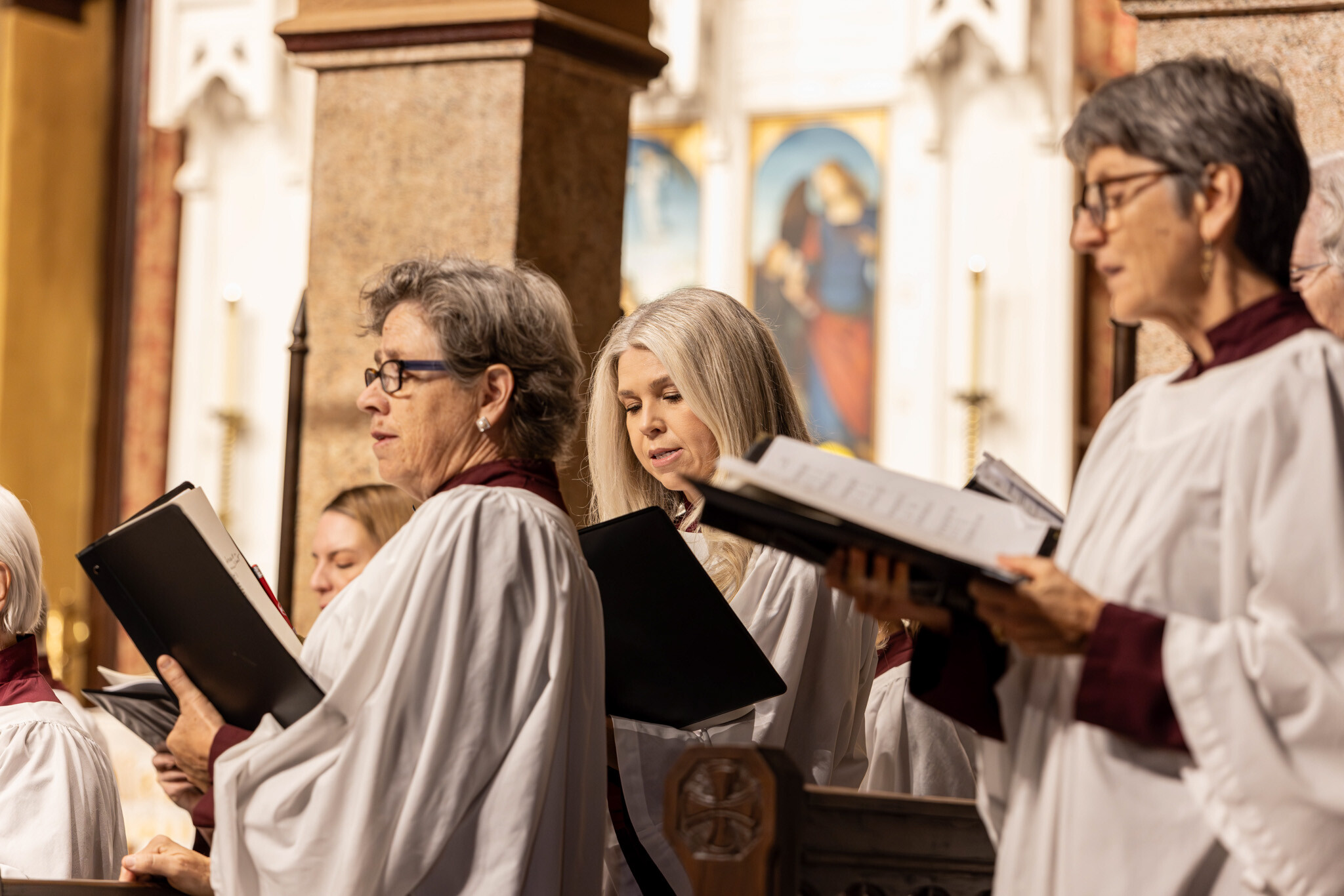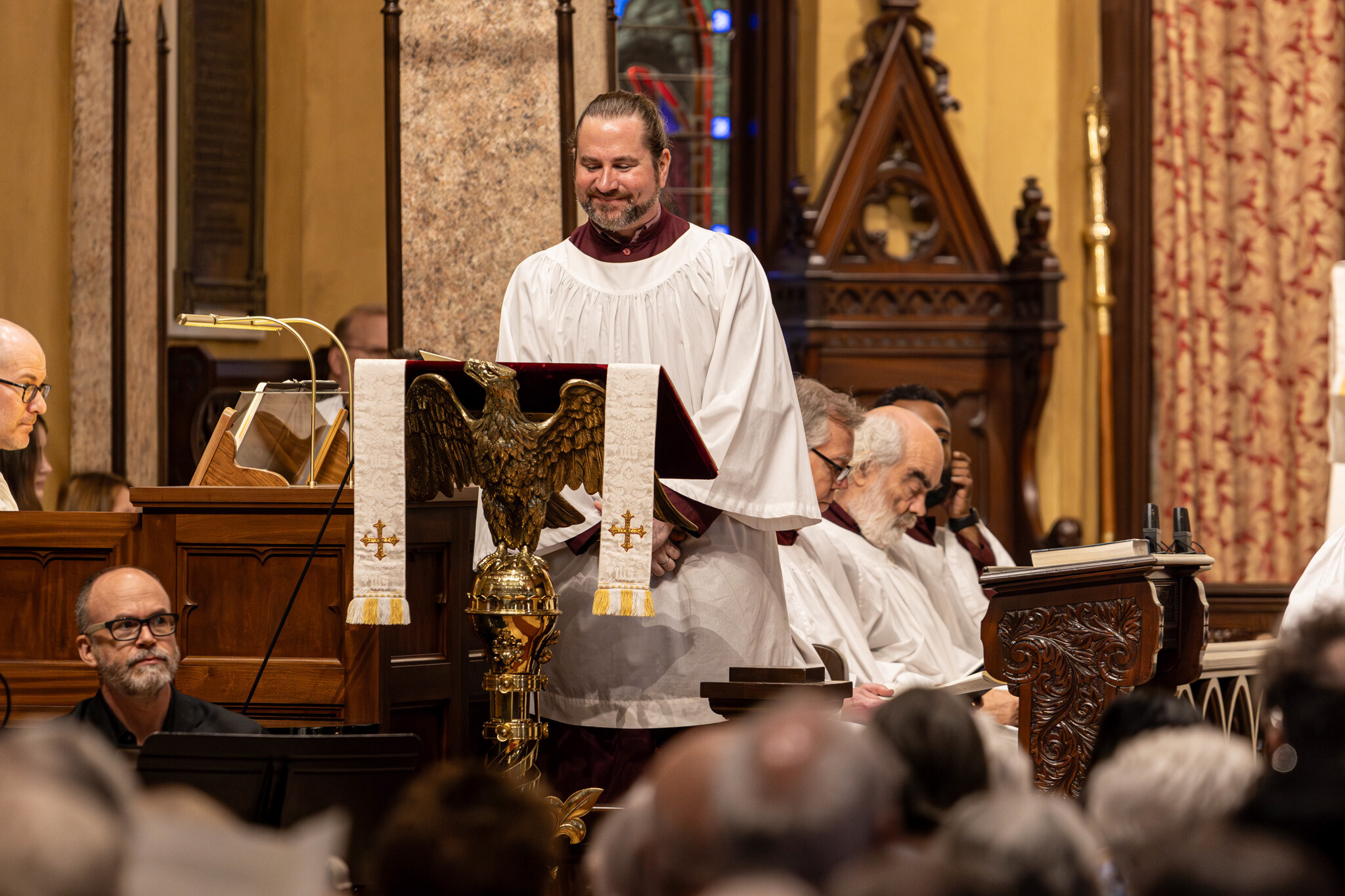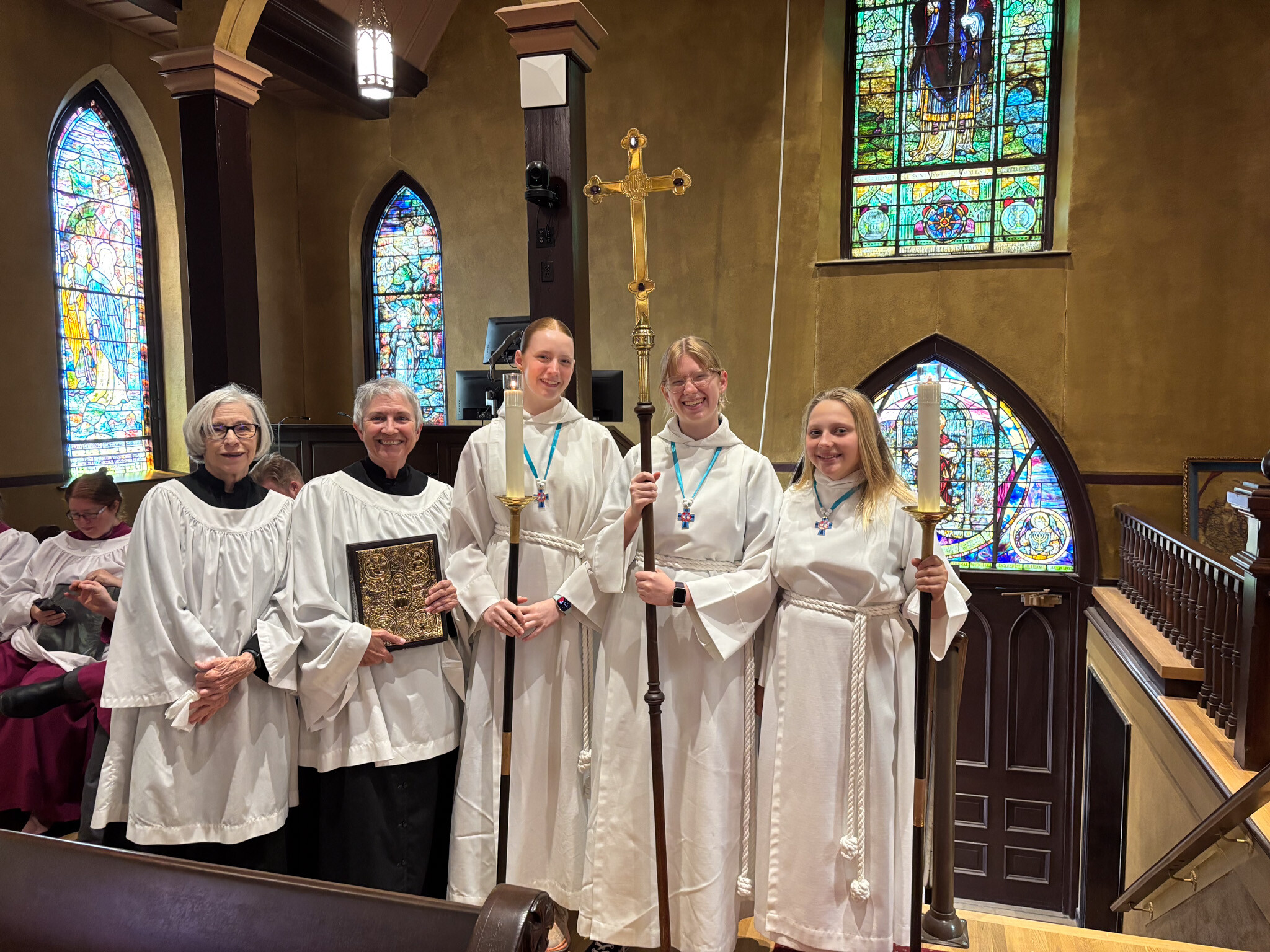
A parable on wealth and true riches provides the occasion this Sunday for the use of two classic texts in settings by important composers.
The parts of the Eucharistic rite that change seldom, if ever, are counterbalanced by those that are proper to each particular occasion. The Prayer Book provides proper Collects and Lessons for each Sunday and Holy Day, but in the historic liturgy of the Western Church there are also, for each occasion, proper chants – largely derived from the Psalms, and sung with the recitation of one or more verses thereof – assigned for singing at the various processions of the Mass. (In Lent in recent years, and on some Holy Days, we have sung the proper Introit chants according to their intended use, i.e. during the Entrance of the Ministers.) At the Reformation the English Church replaced the Introit chants with entire Psalms, and the Offertory and Communion chants with a collection of ‘sentences’ of Scripture to be sung or said. In subsequent versions of the Prayer Book the Introit Psalms and the Communion sentences disappeared, but the Offertory sentences remain to this day, though they are more or less redundant if other music is to be sung during the Offertory.
One of the Offertory sentences found in all previous editions of the Prayer Book was Tobit 4.7: ‘Give alms of thy goods... and turn never thy face from any poor man, and then the face of the Lord shall not be turned away from thee’. This was set to music by Christopher Tye, who was part of the first generation of English composers faced with the task of setting liturgical texts in the vernacular. The style developed by him, Thomas Tallis, and others, was much simpler than the often thickly textured Latin-texted polyphony they had been writing, but the best of this music shows close, and even sophisticated, attention to the prosody of the English. Tye’s ‘Give almes of thy goods’ continues to serve well as an Offertory anthem 475 years or so after it was written.
Many of the hymns written by the first generation or so of Lutheran Reformers were doctrinal, even doctrinaire, in tone and content. The seventeenth century, however, with its share of war and plague, saw the rise of a movement called Pietism and with it, much more devotional, sometimes radically personal, writing. One of the classic Lutheran hymns of that era is Johann Franck’s ‘Jesu, meine Freude’ (Jesus, my joy [Hymn 701]), paired from the beginning with a tune by the important hymn-tune composer and hymnal compiler Johann Crüger. This has been the basis of countless vocal–instrumental and organ settings from its appearance to this very day; a fine example is a multi-verse piece for three voices, two violins, and accompaniment by Dieterich Buxtehude, from which we have excerpted two verses. We present it in the English translation by Catherine Winkworth, the major English translator of German chorales (though her version of this one was unfortunately not chosen for the Hymnal). The text repeatedly contrasts Jesus, the true treasure, with the false treasures, allures, and affectations of the world.




Login To Leave Comment